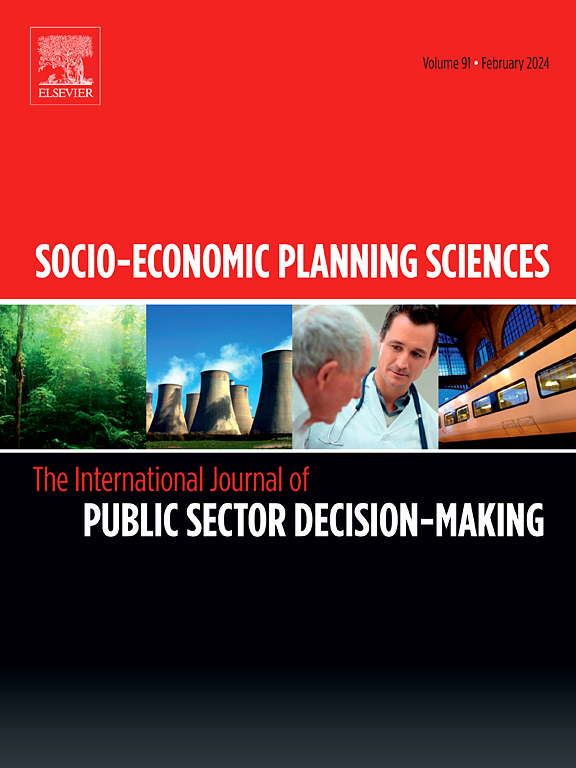Index generation for good governance via multiplicative data envelopment analysis
IF 6.2
2区 经济学
Q1 ECONOMICS
引用次数: 0
Abstract
While it is widely suggested that good governance is a prerequisite for development, many studies in recent years have called into question the calculation of World Governance Indicators (WGI) and the alleged relationship between good governance and development. From this point of view, this study aims to calculate a composite index to specify the level of good governance in 169 countries and examine the relationship between the good governance and human development. The study employs Emrouznejad and Cabanda (2010) output-oriented log-transformed multiplicative data envelopment analysis (MNCP) model, which is suggested to offer superior performance in composite index construction. This model outperforms standard DEA models in terms of its mathematical structure, providing solutions to criticisms regarding the calculation of the good governance index. The results indicate a correlation between the MNCP Model results and the HDI in countries of the higher-income group while showing no correlation between these variables in countries of other income groups. The overall findings reveal that, despite the widely accepted claims, good governance is not a necessary prerequisite for development in low, lower-middle, and upper-middle-income countries, while it is already an existing phenomenon in high-income countries.
求助全文
约1分钟内获得全文
求助全文
来源期刊

Socio-economic Planning Sciences
OPERATIONS RESEARCH & MANAGEMENT SCIENCE-
CiteScore
9.40
自引率
13.10%
发文量
294
审稿时长
58 days
期刊介绍:
Studies directed toward the more effective utilization of existing resources, e.g. mathematical programming models of health care delivery systems with relevance to more effective program design; systems analysis of fire outbreaks and its relevance to the location of fire stations; statistical analysis of the efficiency of a developing country economy or industry.
Studies relating to the interaction of various segments of society and technology, e.g. the effects of government health policies on the utilization and design of hospital facilities; the relationship between housing density and the demands on public transportation or other service facilities: patterns and implications of urban development and air or water pollution.
Studies devoted to the anticipations of and response to future needs for social, health and other human services, e.g. the relationship between industrial growth and the development of educational resources in affected areas; investigation of future demands for material and child health resources in a developing country; design of effective recycling in an urban setting.
 求助内容:
求助内容: 应助结果提醒方式:
应助结果提醒方式:


